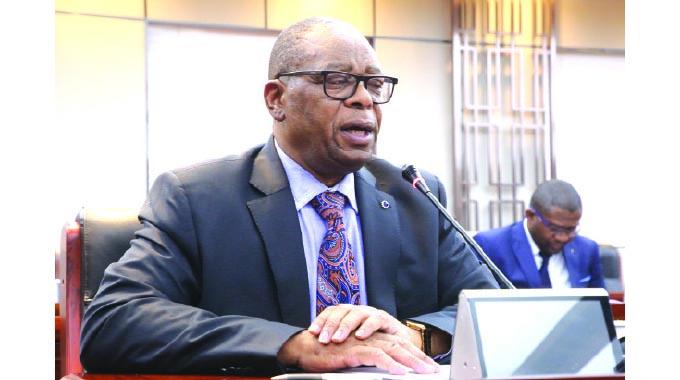News / National
Sugar tax money to set up new cancer treatment centres
07 Dec 2024 at 10:32hrs |
0 Views

The Procurement Regulatory Authority of Zimbabwe (PRAZ) has approved expedited procedures to procure new cancer treatment machines, with the potential completion of the process before the end of 2024.
This move is funded by proceeds from the sugar tax introduced in the 2024 National Budget, which has so far generated over US$18 million. The funds are earmarked for bolstering Zimbabwe's healthcare infrastructure, particularly cancer treatment facilities.
Speaking at a post-Cabinet briefing, Health and Child Care Minister Dr. Douglas Mombeshora announced that his ministry had consulted radio-oncology specialists to identify equipment priorities.
"We are at an advanced stage. PRAZ has approved our request to conduct a short bid process, lasting five days, to accelerate the procurement period," he said.
The procurement aims to reinforce existing facilities at Parirenyatwa Group of Hospitals in Harare and Mpilo Hospital in Bulawayo, as well as establish new cancer treatment centers in Chinhoyi, Gweru, Masvingo, and Mutare.
Currently, Zimbabwe has two operational cancer treatment centers. While the machines at Parirenyatwa and Mpilo have recently been repaired, Dr. Mombeshora emphasized the need for additional equipment to enhance service delivery and address growing demand.
In addition to cancer treatment advancements, other critical healthcare projects are underway: National Tuberculosis Reference Laboratory: Construction at Mpilo Hospital is 85% complete. Chitungwiza Central Hospital Water Tank: Progress is at 55%. X-ray Machine Installations: Completed at Chikurubi Maximum Prison Hospital and Inkomo Barracks Hospital. Oxygen Plant Rooms: Facilities at Lupane Hospital and Chinhoyi Provincial Hospital are expected to be operational this month. Maternity Shelter Renovations: Ten waiting mothers' shelters and hospital theatres, including those at Mt. Darwin, St. Albert's, and Manama, are undergoing refurbishment.
Zimbabwe's ambitious healthcare expansion plan seeks to decentralize cancer treatment services and ensure accessibility in previously underserved regions.
"This is a transformative step in improving healthcare delivery and ensuring that cancer patients receive timely and quality treatment closer to home," said Dr. Mombeshora.
The government's commitment to enhancing healthcare infrastructure reflects its broader goals of achieving universal health coverage and addressing critical gaps in service delivery.
This move is funded by proceeds from the sugar tax introduced in the 2024 National Budget, which has so far generated over US$18 million. The funds are earmarked for bolstering Zimbabwe's healthcare infrastructure, particularly cancer treatment facilities.
Speaking at a post-Cabinet briefing, Health and Child Care Minister Dr. Douglas Mombeshora announced that his ministry had consulted radio-oncology specialists to identify equipment priorities.
"We are at an advanced stage. PRAZ has approved our request to conduct a short bid process, lasting five days, to accelerate the procurement period," he said.
The procurement aims to reinforce existing facilities at Parirenyatwa Group of Hospitals in Harare and Mpilo Hospital in Bulawayo, as well as establish new cancer treatment centers in Chinhoyi, Gweru, Masvingo, and Mutare.
In addition to cancer treatment advancements, other critical healthcare projects are underway: National Tuberculosis Reference Laboratory: Construction at Mpilo Hospital is 85% complete. Chitungwiza Central Hospital Water Tank: Progress is at 55%. X-ray Machine Installations: Completed at Chikurubi Maximum Prison Hospital and Inkomo Barracks Hospital. Oxygen Plant Rooms: Facilities at Lupane Hospital and Chinhoyi Provincial Hospital are expected to be operational this month. Maternity Shelter Renovations: Ten waiting mothers' shelters and hospital theatres, including those at Mt. Darwin, St. Albert's, and Manama, are undergoing refurbishment.
Zimbabwe's ambitious healthcare expansion plan seeks to decentralize cancer treatment services and ensure accessibility in previously underserved regions.
"This is a transformative step in improving healthcare delivery and ensuring that cancer patients receive timely and quality treatment closer to home," said Dr. Mombeshora.
The government's commitment to enhancing healthcare infrastructure reflects its broader goals of achieving universal health coverage and addressing critical gaps in service delivery.
Source - The Chronicle
Join the discussion
Loading comments…




























